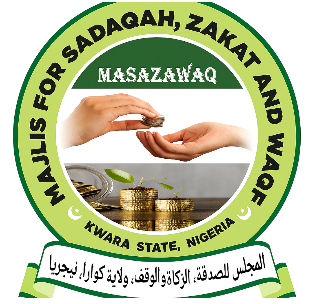Understanding Sadaqah: The Concept of Voluntary Charity
Sadaqah, a significant concept within Islamic tradition, represents voluntary charity provided to those in need. Unlike Zakat, which is obligatory and based on a specific calculation of wealth, Sadaqah is a discretionary form of giving, emphasizing the importance of generosity and compassion in everyday life. The term “Sadaqah” derives from the Arabic root “sadaqa,” which means truthfulness. This reflects the idea that giving is an expression of sincerity and moral integrity.
In Islamic teachings, Sadaqah transcends mere monetary donations. It encompasses any act of kindness or support that benefits others, whether it involves financial assistance, helping the elderly cross the street, or providing emotional support to a friend in distress. Such acts foster a sense of community and belonging, vital components of a cohesive society. By encouraging individuals to engage in Sadaqah, Islam promotes empathy and social responsibility, urging followers to be mindful of the wellbeing of others.
The importance of Sadaqah is highlighted in numerous Hadith and Quranic verses, which emphasize that even small acts of kindness hold immense value. For instance, the Prophet Muhammad (peace be upon him) stated that every act of goodness is Sadaqah. This inclusive interpretation encourages individuals to contribute in ways that are feasible for them, ultimately making charity more accessible and relatable. Through these actions, individuals can alleviate hardship within their communities, supporting those facing challenges and fostering resilience.
Furthermore, Sadaqah plays a critical role in strengthening social ties. As individuals engage in acts of giving, they create connections with others, reinforcing a culture of mutual support and cooperation. In a world marked by socioeconomic disparities, the compassionate practice of Sadaqah serves as a reminder of the shared responsibility to uplift one another, highlighting that the essence of giving goes beyond financial contributions. This holistic understanding of Sadaqah paves the way for exploring its various forms and expressions.
Sadaqah Jariyah: The Gift That Keeps Giving
Sadaqah Jariyah, often referred to as continuous charity, represents a unique form of charitable giving that is characterized by its enduring impact on communities and individuals. Unlike regular acts of sadaqah that may fulfill immediate needs, Sadaqah Jariyah contributes to initiatives that provide lasting benefits over time. This concept is deeply rooted in Islamic teachings, emphasizing the importance of contributing towards sustainable and beneficial projects that can serve others well beyond one’s lifetime.
Examples of Sadaqah Jariyah include funding for wells that supply clean drinking water, establishing educational institutions that foster knowledge and personal growth, and supporting healthcare facilities that help to improve community health. Each of these contributions exemplifies howSadaqah Jariyah can significantly transform lives and create a ripple effect, benefiting not only the direct recipients but also the broader community. For instance, a well provides water to countless individuals, while a school educates generations, thus perpetuating the cycle of knowledge and empowerment.
Moreover, the spiritual rewards attached to Sadaqah Jariyah are profound within Islamic perspectives. Engaging in this form of giving is believed to not only secure ongoing blessings in this life but also yield rewards in the afterlife. As the noble Prophet Muhammad (peace be upon him) articulated, the acts of charity that continue to benefit others are among the few deeds that remain with a person after their passing. Hence, Sadaqah Jariyah serves both practical and spiritual purposes, encouraging individuals to invest in initiatives that embody altruism and community welfare.
Sadaqah through Time and Skills: Volunteering and Service
Sadaqah is often associated with monetary donations; however, it encompasses much more. One significant form of Sadaqah is through the donation of time and skills. Volunteering not only fulfills a community need but also fosters a spirit of togetherness and social responsibility. Individuals can utilize their unique skills and expertise to contribute positively, thus embodying the true essence of Sadaqah.
Volunteering can take many forms, such as teaching, mentoring, and offering professional services. For instance, individuals skilled in finance might provide free financial consulting to local non-profits, helping them manage their resources more effectively. Similarly, experienced educators may volunteer to mentor students, enhancing their academic performance and self-confidence. These acts of service foster knowledge-sharing and build bonds within the community, proving that Sadaqah is indeed more than just financial support.
The impact of these contributions can be profound. Consider the story of a retired engineer who devoted his weekends to teaching young students about robotics. His expertise not only sparked their interest in STEM (Science, Technology, Engineering, and Mathematics) fields but also helped several students secure scholarships for further education. This example illustrates how donating skills can create lasting change beyond immediate monetary aid.
In addition to personal development, volunteering encourages community resilience. When individuals step forward to help others, they create networks of support, fostering an environment where everyone thrives. Such collaborations build stronger, more cohesive communities that can withstand challenges collectively. By integrating time and skills into the practice of Sadaqah, individuals can address various social issues effectively, reinforcing the notion that everyone has something valuable to give.
Thus, volunteering and service play a critical role in the broader concept of Sadaqah. The invaluable contributions of time and skills serve not just to alleviate immediate needs but also to inspire hope, unity, and collective growth within communities.
Sadaqah through Knowledge: Sharing Wisdom and Education
One of the most significant forms of Sadaqah is the sharing of knowledge, which encompasses not only formal education but also informal mentorship and guidance. This approach to Sadaqah highlights the profound impact that education and wisdom can have on individuals and communities. By imparting knowledge, one can empower others to improve their circumstances and contribute to society more effectively.
Education is a powerful tool in breaking the cycle of poverty and fostering personal growth. Initiatives aimed at spreading knowledge are varied and can range from formal teaching in schools and universities to community workshops that engage learners of all ages. With the rise of digital platforms, sharing knowledge has never been more accessible. Online courses, webinars, and social media provide avenues for individuals to educate others, regardless of geographical boundaries. This form of Sadaqah encourages a culture of inclusivity, where everyone has the opportunity to learn and grow.
Mentorship is another crucial aspect of sharing knowledge. By guiding individuals through academic, professional, or personal challenges, mentors can make a significant difference in the lives of their mentees. This one-on-one interaction fosters trust and encourages personal development. Organizations that focus on mentorship can create networks of support, helping individuals navigate their paths and offer essential life skills that can lead to lasting change.
Furthermore, projects aimed at providing educational resources, such as libraries, scholarships, and training programs, can transform entire communities. When resources are allocated for learning, they lay the foundation for a more informed society capable of positive contributions. The collective impact of sharing knowledge extends beyond immediate benefits, creating a legacy of informed individuals ready to support and uplift others.
In essence, Sadaqah through knowledge is vital for individual growth and the overall advancement of society. By valuing and prioritizing education, we enhance our communities, paving the way for a brighter future for generations to come.
Sadaqah through Kindness and Positive Actions: The Ripple Effect
Kindness and positive actions can manifest in numerous ways, creating waves of goodwill that extend far beyond an individual. Everyday acts of kindness, such as offering help to a neighbor, listening attentively to a friend, or performing small gestures that bring joy, all serve as non-monetary forms of Sadaqah. These types of actions embody the spirit of giving and contribute significantly to community well-being.
When one person engages in a simple act of kindness, it often inspires others to do the same, creating a ripple effect. For instance, assisting an elderly neighbor with grocery shopping not only aids them in their daily tasks but may motivate others in the community to step forward and offer assistance as well. This chain reaction cultivates an environment where inclusivity and empathy thrive, effectively reinforcing the social fabric of local communities.
Additionally, lending a listening ear during someone’s challenging times can provide immense emotional support. In today’s fast-paced world, taking the time to genuinely connect with others promotes mental well-being and encourages open communication, reducing feelings of isolation. Small, thoughtful gestures, like sending a handwritten note or occasionally preparing a meal for a friend, may seem inconsequential, yet they hold the power to enhance someone’s day significantly and deepen interpersonal relationships.
Ultimately, Sadaqah through kindness and positive actions emphasizes that giving does not always require monetary contributions. By participating in these daily practices, individuals can cultivate a culture of kindness that inspires others to join in. Embracing such attitudes not only enriches the lives of those around us but also transforms communities into spaces of collective support and understanding.





